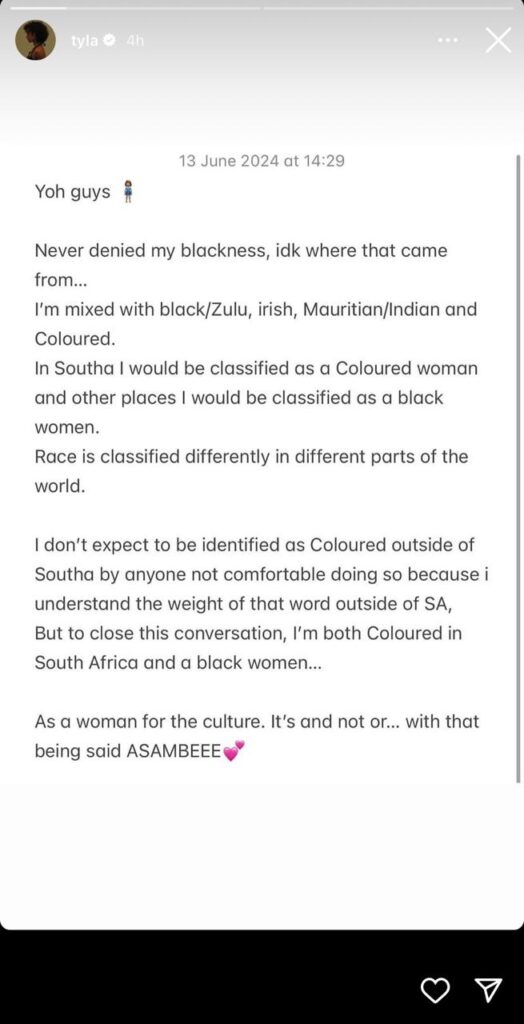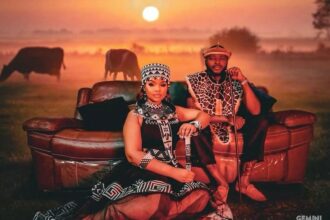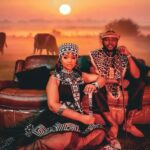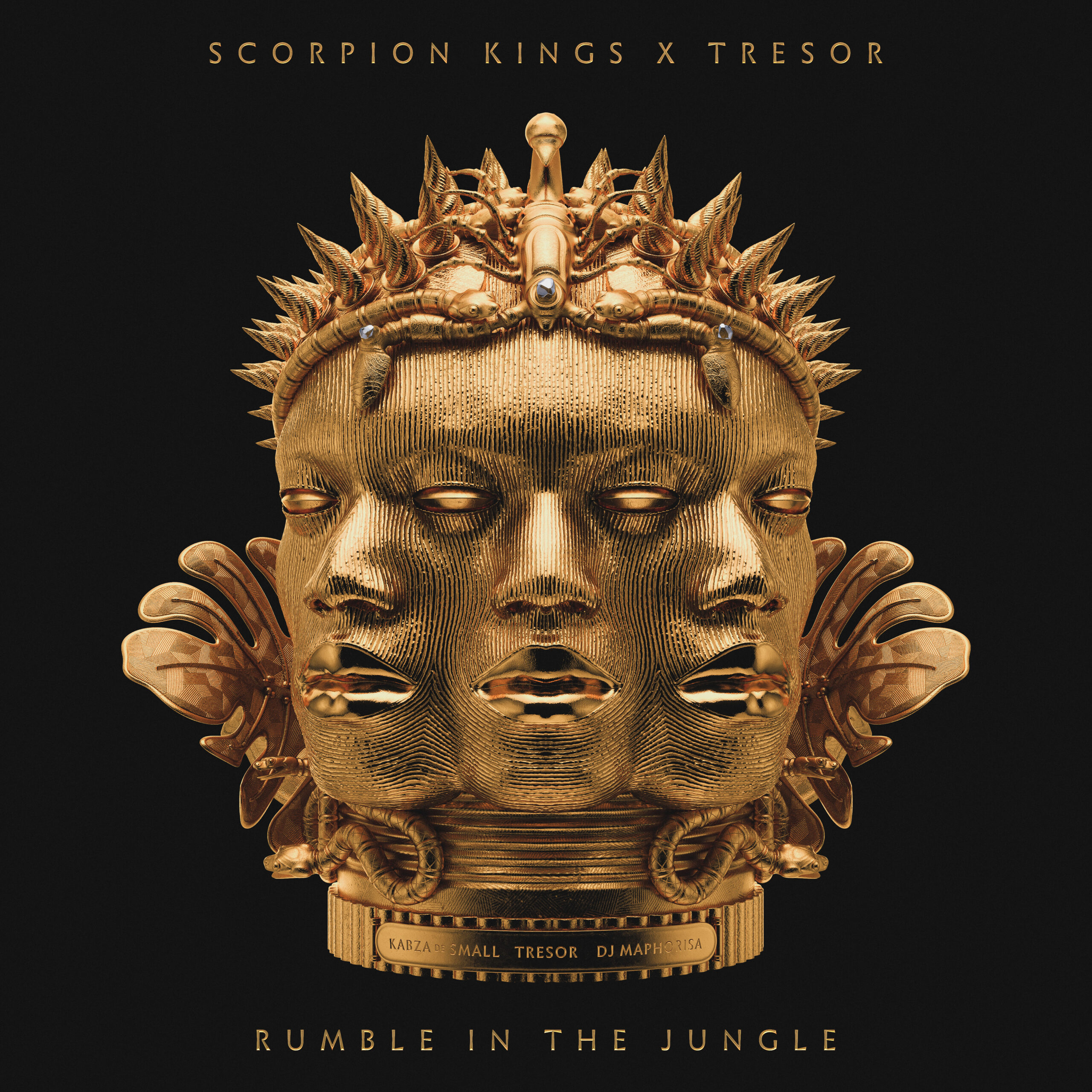South African superstar Tyla has officially cleared the air on her racial identity following months of intense debate on social media. The Grammy-award-winning singer addressed the controversy over whether she identifies as coloured or black after an awkward moment during her interview on The Breakfast Club.
The debate over Tyla’s racial identity has trended multiple times, with some people claiming she is black, while others assert she is coloured. On Thursday night, the “Water” hitmaker took to social media to set the record straight and put an end to the ongoing speculation.
“Never denied my blackness, idk where that came from… I’m mixed with black/Zulu, Irish, Mauritian/Indian and Coloured,” she wrote in a heartfelt note. Tyla explained that in South Africa, she is classified as coloured, but in other parts of the world, she is identified as black.
“In Southa [South Africa], I would be classified as a Coloured woman, and in other places, I would be classified as a black woman. Race is classified differently in different parts of the world,” she noted.
Tyla further elaborated on the complexities of racial identity and the differing perceptions across various cultures. “I don’t expect to be identified as coloured outside of Southa by anyone not comfortable doing so because I understand the weight of that word outside of SA. But to close this conversation, I’m both coloured in South Africa and a black woman.”
In her statement, Tyla emphasized her pride in her heritage and her commitment to her culture. “As a woman for the culture. It’s and not or… with that being said ASAMBEEE,” she concluded.
The statement has sparked reactions on social media, with many fans expressing support and admiration for Tyla’s clarity and pride in her diverse background. By addressing the debate head-on, Tyla has provided a comprehensive understanding of her identity, acknowledging the nuanced nature of race and ethnicity in different contexts.
As Tyla continues to make waves in the music industry, her openness about her racial identity solidifies her as an influential figure, both in South Africa and globally. With setting her message straight, she sets an example of pride, resilience, and cultural appreciation.











